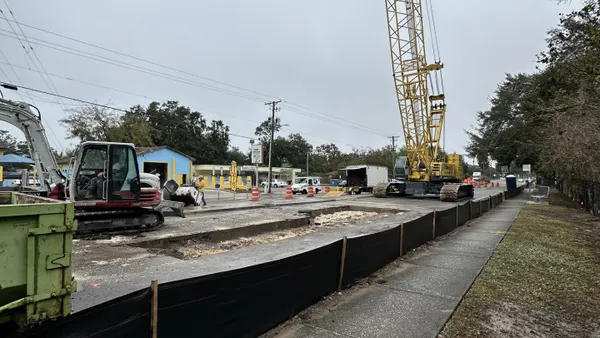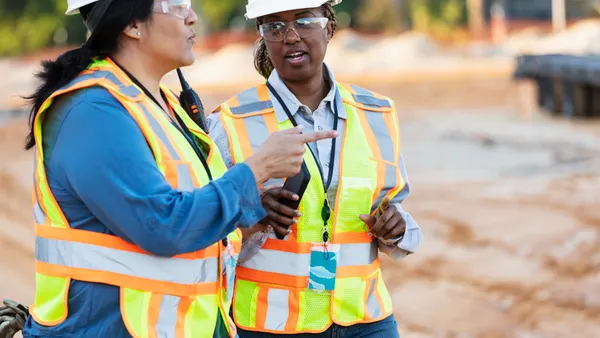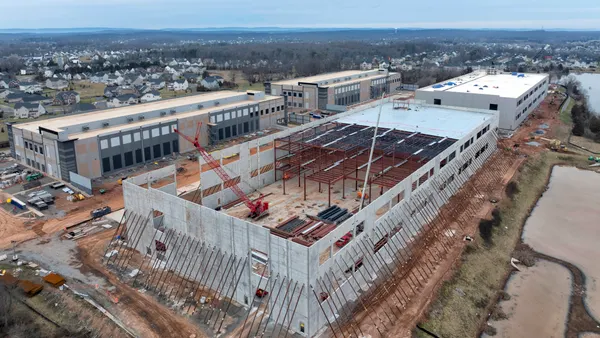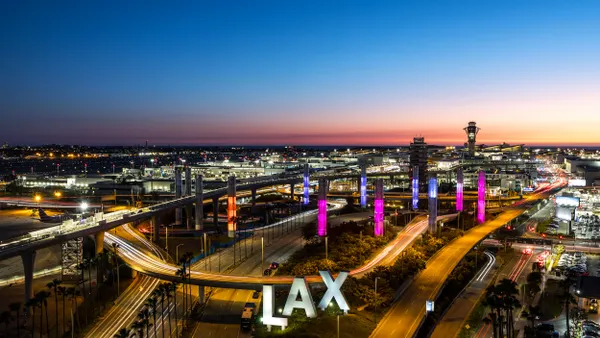Dive Brief:
- The House of Representatives introduced a continuing resolution Tuesday that would fund the government through April but postpone a planned $2.4 billion increase in infrastructure spending next year, according to The Hill. The measure is expected to also pass the Senate.
- In December 2015, Congress passed the Fixing America’s Surface Transportation (FAST) Act, which authorized a total of $305 billion over five years for Highway Trust Fund projects. However, this latest short-term spending bill keeps fiscal 2016 spending levels — including infrastructure funding — the same through April.
- Proponents of the original plan tried to get the infrastructure spending boost included in the continuing resolution, and they said the delay would result in fewer projects, as spring construction jobs will already be in progress by the time Congress release the funds.
Dive Insight:
Despite broad enthusiasm for President-elect Donald Trump’s $1 trillion infrastructure plan, Democrats pointed the finger at House Republicans for supporting the continuing resolution and said they "missed the memo" regarding Trump’s commitment to increased public works spending. The measure also puts a strain on those states — and transportation contractors — that had banked on the $2.4 billion to address more of their ready-to-go projects.
Details of Trump's 10-year plan are light so far, but the linchpin is private investment into revenue-generating assets like airports or toll roads. Shortly before the election, in the only details of the policy thus far, Trump's team said the private sector would receive an 82% tax credit in exchange for its equity investments and be able to collect the user fees or tolls for a predetermined period of time as the payoff.
Lack of details, however, have not dampened industry fervor. After Trump's victory, investment in construction and engineering companies — and their stock prices — shot up in anticipation of the mammoth infrastructure initiative. Adding to the zeal is the fact that the incoming Congress has a Republican majority, indicating that passage of a Trump infrastructure bill might have a smoother path. Future U.S. Senate Democratic Leader Charles Schumer (NY) has said Congress could work together to pass Trump's bill within the first 100 days of the new administration, but he rejected the private-investment component of the plan, calling it a gimmick. Corporate tax reform, he said, would allow the federal government to directly fund the program.
One potential change to the initial program outline is that the team is now considering an infrastructure bank, something for which Trump's team derided Democrat opponent Hillary Clinton during the camaign. An infrastructure bank, however, could be a way to attract large, global investors. The Caisse de depot, Canada’s second-largest public pension fund, recently said that such a funding and administrative mechanism would benefit the U.S. by attracting big institutional investors.










